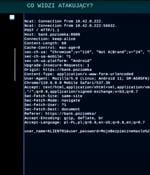Security News

The prolific China-linked nation-state actor known as APT41 has been linked to two previously undocumented strains of Android spyware called WyrmSpy and DragonEgg. "Known for its exploitation of web-facing applications and infiltration of traditional endpoint devices, an established threat actor like APT 41 including mobile in its arsenal of malware shows how mobile endpoints are high-value targets with coveted corporate and personal data," Lookout said in a report shared with The Hacker News.

A critical design flaw in the Google Cloud Build service discovered by cloud security firm Orca Security can let attackers escalate privileges, providing them with almost nearly-full and unauthorized access to Google Artifact Registry code repositories. Dubbed Bad.Build, this flaw could enable the threat actors to impersonate the service account for the Google Cloud Build managed continuous integration and delivery service to run API calls against the artifact registry and take control over application images.

Hackers are conducting widespread exploitation of a critical WooCommerce Payments plugin to gain the privileges of any users, including administrators, on vulnerable WordPress installation. WooCommerce Payments is a very popular WordPress plugin allowing websites to accept credit and debit cards as payment in WooCommerce stores.

Threat actors are taking advantage of Android's WebAPK technology to trick unsuspecting users into installing malicious web apps on Android phones that are designed to capture sensitive personal information. "The link contained in the message led to a site that used WebAPK technology to install a malicious application on the victim's device."

Ukraine's Computer Emergency Response Team (CERT-UA) is warning that the Gamaredon hacking operates in rapid attacks, stealing data from breached systems in under an hour. [...]

Microsoft on Friday said a validation error in its source code allowed for Azure Active Directory tokens to be forged by a malicious actor known as Storm-0558 using a Microsoft account consumer signing key to breach two dozen organizations. "Storm-0558 acquired an inactive MSA consumer signing key and used it to forge authentication tokens for Azure AD enterprise and MSA consumer to access OWA and Outlook.com," the tech giant said in a deeper analysis of the campaign.

The administrators of the Genesis Market for stolen credentials announced on a hacker forum that they sold the store and a new owner would get the reins "Next month." On June 28, the account GenesisStore, used by an operator of the Genesis Market for announcements on a hacker forum, posted that the group behind the store decided to sell the platform.

Microsoft says it still doesn't know how Chinese hackers stole an inactive Microsoft account consumer signing key used to breach the Exchange Online and Azure AD accounts of two dozen organizations, including government agencies. The threat actors used the stolen Azure AD enterprise signing key to forge new auth tokens by exploiting a GetAccessTokenForResource API flaw, providing them access to the targets' enterprise mail.

72% of hackers are confident that AI cannot replace human creativity in security research and vulnerability management, according to Bugcrowd. Generative AI was a major theme in the 2023 report, with 55% of respondents saying that it can already outperform hackers or will be able to do so within the next five years.

The Russian state-sponsored hacking group 'APT29' has been using unconventional lures like car listings to entice diplomats in Ukraine to click on malicious links that deliver malware. APT29 is linked to the Russian government's Foreign Intelligence Service and has been responsible for numerous cyberespionage campaigns targeting high-interest individuals across the globe.